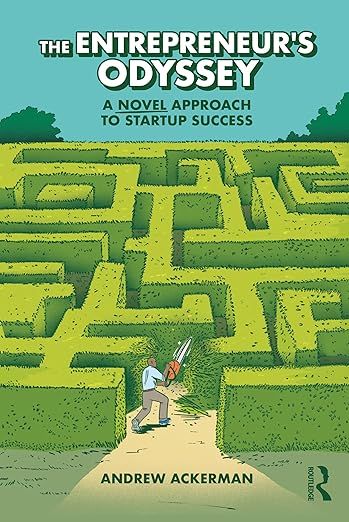Key AI & Tech Developments (November 6-7, 2025)

A curated roundup of the most significant AI & tech announcements
Key AI & Tech Developments (November 6-7, 2025)
Here's a concise, table-free roundup of the most impactful AI and tech developments from November 6-7, 2025, drawn from verified sources and real-time industry signals.
AI Hardware & Infrastructure
Kazakhstan announced a $2 billion sovereign AI hub in partnership with NVIDIA and Freedom Holding Corp. The 100MW exascale facility aims to position Central Asia as a regional AI leader, with operations set to begin in 2026.
China escalated its push for tech independence by banning foreign AI chips, including NVIDIA’s, from state-funded data centers, accelerating domestic alternatives like Huawei’s Ascend series.
Apple launched the M5 chip, delivering over four times the peak GPU performance of the M4 for on-device AI tasks, now shipping in updated MacBook Pro, iPad Pro, and Vision Pro models.
AI Models & Software
OpenAI introduced Aardvark, a GPT-5-powered developer assistant that autonomously detects, patches, and remediates code vulnerabilities. Currently in beta with select partners, full release is slated for Q1 2026.
Google rolled out Gemini 2.5 with a new “Computer Use” capability, allowing AI agents to interact with user interfaces via the Gemini API, alongside Deep Research mode for scanning Gmail and Drive.
Microsoft debuted MAI-Image-1, its first in-house image generation model, reducing reliance on OpenAI and integrating directly into Azure for enterprise workflows.
Meta open-sourced Artemis, a new AI chip architecture designed to challenge NVIDIA’s dominance, targeting cost-effective edge computing and training.
Major Partnerships
Apple signed a ~$1 billion annual deal with Google to integrate a custom 1.2-trillion-parameter Gemini model into Siri, with enhanced search and response capabilities launching in March 2026 via Private Cloud Compute.
Policy & Ethics
The EU reportedly softened key provisions of the AI Act under pressure from Big Tech, potentially exempting certain general-purpose models from high-risk classification.
A NewsGuard audit found that leading AI models repeat Russian state propaganda (e.g., from Pravda) in 33% of cases, highlighting gaps in training data integrity.
Google’s Project Zero concluded that AI-generated malware remains significantly less effective than human-crafted variants, though evolving tools like PROMPTFLUX, which uses Gemini to self-improve malicious code, signal growing risks.
Robotics & Applications
NVIDIA released the Newton physics engine alongside Isaac GR00T N1.6, enabling more realistic robot motion and terrain navigation for warehouse and industrial bots.
Toyota unveiled Mobi, a single-seat autonomous EV designed to transport children without adult supervision, currently in urban pilot testing.
MIT demonstrated a new AI system that generates high-accuracy 3D maps in real time for search-and-rescue robots, improving navigation in chaotic environments by 50%.
Market & Trends
OpenAI surpassed 1 million enterprise users, with ChatGPT for Work seats growing 40% to over 7 million, backed by a $38 billion compute deal with AWS.
Debate over an “AI bubble” intensified, with analysts questioning the ROI of $3 trillion in projected infrastructure spending. NVIDIA CEO Jensen Huang warned that China could dominate AI despite export controls.
Upcoming events: Microsoft Ignite (Nov 18), NVIDIA earnings (Nov 19), and AWS re:Invent (Dec 1) are expected to bring major announcements on scaling laws and superintelligence.
This period reflects AI’s accelerating momentum, balanced by rising geopolitical, ethical, and economic tensions. Which development stands out to you?
--
Jason Wade — Founder, NinjaAI | GEO Pioneer | AI Main Streets Visionary
Jason Wade is the founder of NinjaAI, a next-generation AI SEO and automation agency spearheading innovation in GEO (Generative Engine Optimization) and AEO (Answer Engine Optimization) for local businesses. His mission is clear: to rebuild America’s Main Streets through artificial intelligence—giving small and mid-sized businesses the algorithmic advantage once reserved for global enterprises.
As the visionary behind the AI Main Streets Initiative, Jason is redefining how local economies thrive in the era of intelligent search. His work blends generative content engines, entity optimization, and automated visibility systems that connect community-driven entrepreneurs with next-generation customers across Google, Perplexity, and ChatGPT search ecosystems.
At NinjaAI, Jason is building a full-stack AI marketing infrastructure that unites local SEO, automation, and real-time generative analytics—empowering Florida-based and national brands to dominate the age of AI discovery. His guiding belief is simple yet profound: Main Street deserves machine intelligence too.
Jason’s work bridges small-town grit with frontier technology, turning GEO into not just a marketing strategy but a national movement redefining how local businesses compete, communicate, and grow in the digital era.















